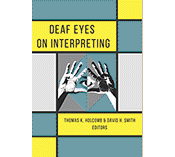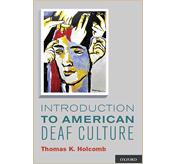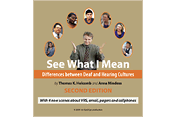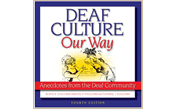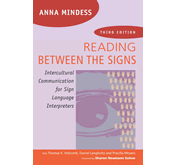 This is the twelfth weekly installment featuring highlights from the 20 chapters in the new book, Deaf Eyes on Interpreting, edited by Thomas K. Holcomb and David H. Smith which was released in June by Gallaudet University Press.
This is the twelfth weekly installment featuring highlights from the 20 chapters in the new book, Deaf Eyes on Interpreting, edited by Thomas K. Holcomb and David H. Smith which was released in June by Gallaudet University Press.
In this chapter, Thomas K. Holcomb makes a case for a stronger and closer relationship between Deaf Academics and the interpreters who perform ASL to Spoken English interpreting work for them. His point is that “just trusting” that an interpreter will do a excellent job is not enough. In a similar fashion to trusting a mechanic to work on your car or a dentist to work on your teeth, consumers need some kind of verification that the job is being done well.
In the case of interpreters, it is difficult for the Deaf academic to verify the quality of interpreters’ performance without direct observation. Holcomb shares his experience of having a transliterator work in his classroom to provide him with direct signed translation of the interpreters’ ASL to Spoken English interpretation of his lectures. He insists that such solutions need to be pursued in order to promote genuine trust among Deaf Academics in the work the interpreters do on their behalf.
